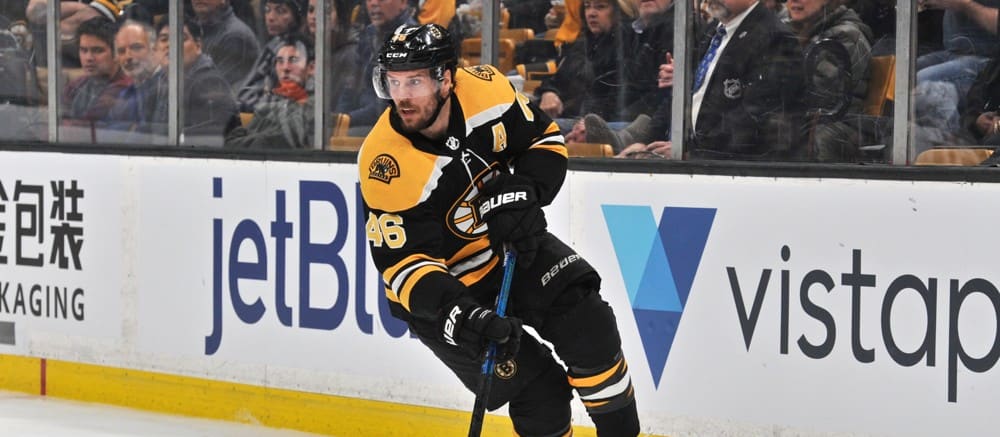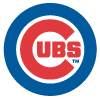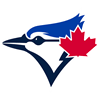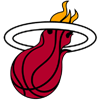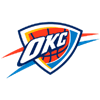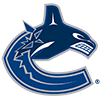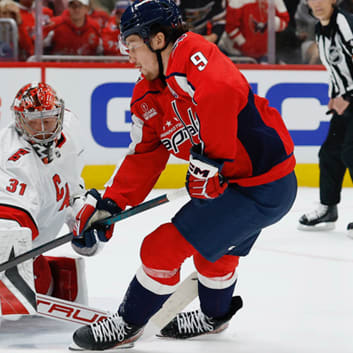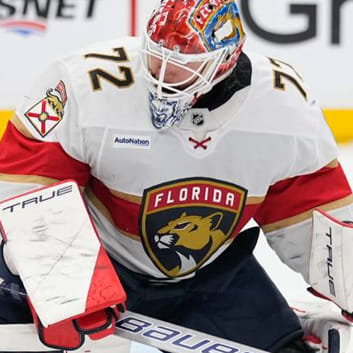My, how quickly things change. On Tuesday, I had just written a fantasy hockey playoffs cheat sheet, and not even one full week has passed and it's already outdated. That's the reality of life during uncertain times as COVID continues to disrupt the NHL schedule. The Canucks' original Friday start date was postponed until Sunday night after serious concerns were raised by the players that it wasn't enough time to prepare, and since then the Avalanche have also been forced to postpone games due to positive COVID tests.
The schedule changes and another week's worth of games played have obviously changed some things, so here's a rundown of things to keep in mind. Some food for thought, some leftover stats and, of course, some fantasy advice. Let's dig in.
All fancy stats courtesy Natural Stat Trick.
The Bear Awakens
The last cheat sheet had Pittsburgh having the easiest schedule the rest of the way based on opponents' points percentage. That is no longer the case, and it's now the Bruins who have that luxury. If we remove the Bruins' final two games against the Islanders and the Capitals, which will not count in Yahoo fantasy leagues because they will be played after May 8, it's an even easier path to the end of the season.
Starting Week 14 (April 19-25), the points percentage of the Pens' opponents increased from .483 to .505, mostly because sandwiched between relatively easy games against the Devils and Sabres are two games each against
My, how quickly things change. On Tuesday, I had just written a fantasy hockey playoffs cheat sheet, and not even one full week has passed and it's already outdated. That's the reality of life during uncertain times as COVID continues to disrupt the NHL schedule. The Canucks' original Friday start date was postponed until Sunday night after serious concerns were raised by the players that it wasn't enough time to prepare, and since then the Avalanche have also been forced to postpone games due to positive COVID tests.
The schedule changes and another week's worth of games played have obviously changed some things, so here's a rundown of things to keep in mind. Some food for thought, some leftover stats and, of course, some fantasy advice. Let's dig in.
All fancy stats courtesy Natural Stat Trick.
The Bear Awakens
The last cheat sheet had Pittsburgh having the easiest schedule the rest of the way based on opponents' points percentage. That is no longer the case, and it's now the Bruins who have that luxury. If we remove the Bruins' final two games against the Islanders and the Capitals, which will not count in Yahoo fantasy leagues because they will be played after May 8, it's an even easier path to the end of the season.
Starting Week 14 (April 19-25), the points percentage of the Pens' opponents increased from .483 to .505, mostly because sandwiched between relatively easy games against the Devils and Sabres are two games each against the Bruins and Capitals, both of whom have improved since the trade deadline. The Bruins' opponents, meanwhile, went from .506 to .482, and that's because the Bruins still have five games against the Sabres (who have improved slightly but not by much) and two games against the Devils. Without the final two games, the Bruins' opponents' points percentage drops further to .447. Translation: if you're going to lean on a team for waiver-wire pickups from now until the end of the season, look at Boston.
Pay close attention to that second line of David Krejci (30 percent rostered in Yahoo leagues) with Craig Smith (43 percent) and Taylor Hall, who has now scored two goals in three games with the black and gold. If you're keeping track, that's the same number he scored in 37 games with the Sabres this season who are *twists knife* paying him not to play on their team. His unfathomably low 2.3 shooting percentage with the Sabres has jumped to 22.2 percent on the Bruins, raising his season average to 4.1 percent. He's fit in nicely on the second line where there's no pressure to be the go-to guy, and in 29:00 5v5 TOI, they've combined for 31 shot attempts, which works out to 64.14 shot attempts per hour and a 54.39 5v5 CF%. That, by the way, compares favorably to the Rangers' red-hot line of Artemi Panarin carrying with Ryan Strome and Colin Blackwell's 55.21 CF/60 and 52.66 CF%.
It bears mentioning – pun intended – that even though Hall's shooting percentages are returning to the mean, we should give up the idea that he's an elite finisher because he's never proven it and he's not known for his shooting ability; we should come to terms with the fact that most of his positive value is derived from his ability to drive play. The best finisher on that line might be Smith, who's scored four goals in his last six games, and though lacking in high-end skill has historically done a very good job of generating shots around the net.
The biggest difference for the Bruins, however, has been the play of Mike Reilly (14 percent). Acquired from Ottawa for a third-round pick in 2022, he's helped stabilize a fairly young defense and also finds himself quarterbacking the top power play in Matt Grzelcyk's absence. Reilly's tenure with the Sens was maligned because it often looked like he was in over his head (as was most of their defense, but I digress), and he also doesn't have a standout skillset or high-end qualities of a first-pairing defenseman. And, on the Sens, the more minutes he played, the more mistakes he was bound to make. However, his underlying numbers were the best among Sens defenders with a 52.19 5v5 CF%, and was generally as good as the underrated Artyom Zub in limiting goals with a 2.23 5v5 xGA/60. In the three games with Boston, Reilly's 5v5 CF% is 64.04 percent, which would rank first among all defensemen in the league who have at least played the same minutes Reilly has in a Bruins uniform (ie. minimum 50 5v5 TOI). He has some fantasy value playing on their top power play, but note that his 74.52 CF/60 on the power play falls well short of Grzelcyk's 98.54 and even Charlie McAvoy's 85.14, which means he's not the ideal top option and Grzelcyk's return could mean the end of Reilly in that role.
Goalie Report
If you were one of the astute managers who picked up Devan Dubnyk (39 percent rostered) as an insurance policy, good for you — you're on top of things. I can't promise Dubnyk's numbers will be pretty — and they probably won't — but the wins will come because the Avalanche offense is just burying everyone. Having their games postponed is bad news for fantasy managers because that potentially means fewer games of Nathan MacKinnon and Cale Makar for their lineups, but the positive spin is that it potentially lengthens their season and allows Philipp Grubauer to recover before the playoffs begin. The Avalanche's only challenge for the rest of the season are two road games against the Knights, otherwise it's just two more games against the Blues, who continue to look shaky, and then six more games combined against the Sharks and Kings. I would also take a stab at former Sabres third-string goalie Jonas Johansson, who has improved to a .929 Sv% and 1.87 GAA in five games with the Avs. Goalies perform better with more goal support and a competent defense? Shocking, I know.
Are we ready to give up on Carey Price yet? Most of the hockey world has been in denial the last few seasons, but with another loss Saturday after allowing four goals on 15 shots, Price's 2.77 GSAA in 24 games ranks 26th in the league (min. 60 5v5 TOI), just ahead of Pittsburgh backup Casey DeSmith (2.58) and behind his own backup Jake Allen (3.00). It would take a pretty significant collapse by the Habs to lose their playoff spot — thank goodness the Flames aren't good — but down the stretch with one more game against the Jets, two more against the Oilers and four more against the Leafs, you wonder if Price is worth starting in any of those games. Allen (35 percent rostered) is a good insurance policy for both the Habs and fantasy managers who have Price on their roster.
Speaking of backups, Jake Oettinger (31 percent rostered) and his strong play has pushed him into a 50/50 timeshare with Anton Khudobin (77 percent). They've both been excellent in April, with three wins in five games each and both posting a save percentage at .940 or above. The Stars defend very well, and another win Saturday puts them just three points behind Nashville with three games in hand. They have a big chance to close that gap even with four consecutive games against the Red Wings before having to play Carolina, Tampa Bay and Florida in six of their final seven games before the fantasy season ends May 8. Also, there's no way Jason Robertson should only be rostered in 47 percent of leagues.
The timeshare in Carolina is a little less clear. Petr Mrazek is the unquestioned starter with a .938 Sv% and 1.72 GAA in April, but who will back him up is a key question. James Reimer may have seniority, but Alex Nedeljkovic (.948 Sv%, 1.35 GAA, 41 percent rostered) has outplayed him by a significant margin, and they have three sets of back-to-backs remaining. A Mrazek-Reimer-Mrazek-Nedeljkovic rotation just seems unwieldy, and it's a good problem to have, but down the stretch if a division title and a chance to avoid either Florida or Tampa Bay in the first round is on the line, how will the Canes solve their problem? Nedeljkovic seems like the better add based on performance alone, and in keeper leagues he seems to have better long-term prospects anyway.


